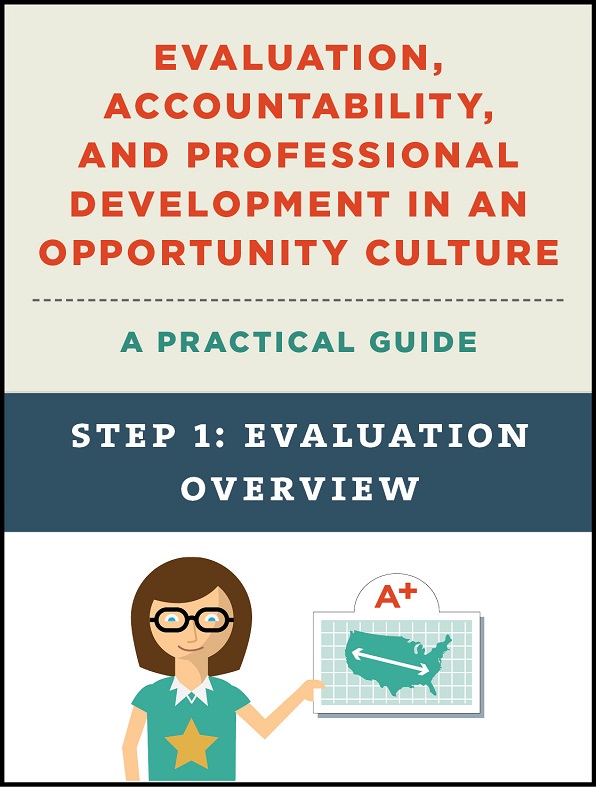Evaluation is one critical element of an Opportunity Culture, used primarily to guide development and career opportunities. But previous teacher evaluation reforms were built for the one-teacher-one-classroom model, and few districts have provided a robust, sustainably funded way to connect teacher evaluation with career opportunities. In contrast, in an Opportunity Culture, few teachers work alone most of the time. Because most Opportunity Culture teachers collaborate with colleagues in teams, they see one another’s thinking and actions up close. These colleagues and team leaders are in the best position to give one another valuable and accurate feedback to support their improvement throughout the year. All of this changes both the content and process of teacher evaluation—for the better. But districts and states must deliberately change evaluation to match the team, team leader, and extended-reach roles that are common in schools using Opportunity Culture models. This guide will help education leaders align evaluation and its uses with an Opportunity Culture and similar school models and career paths—successfully and at a low cost.

